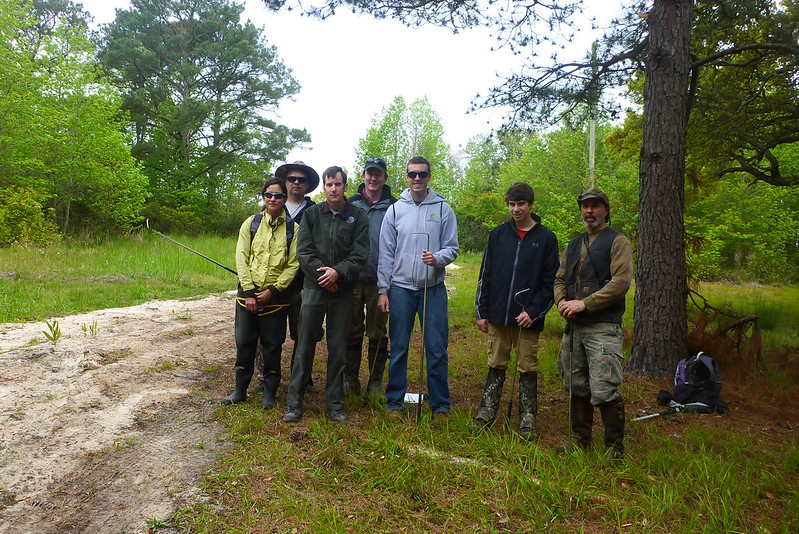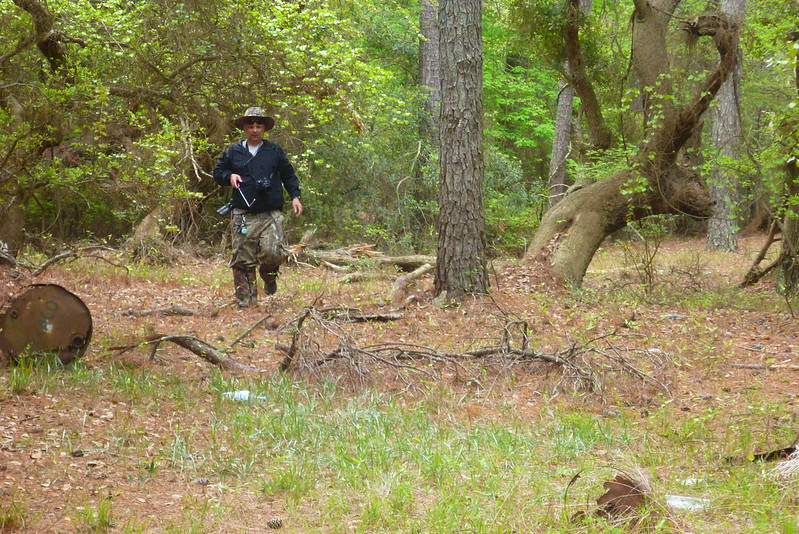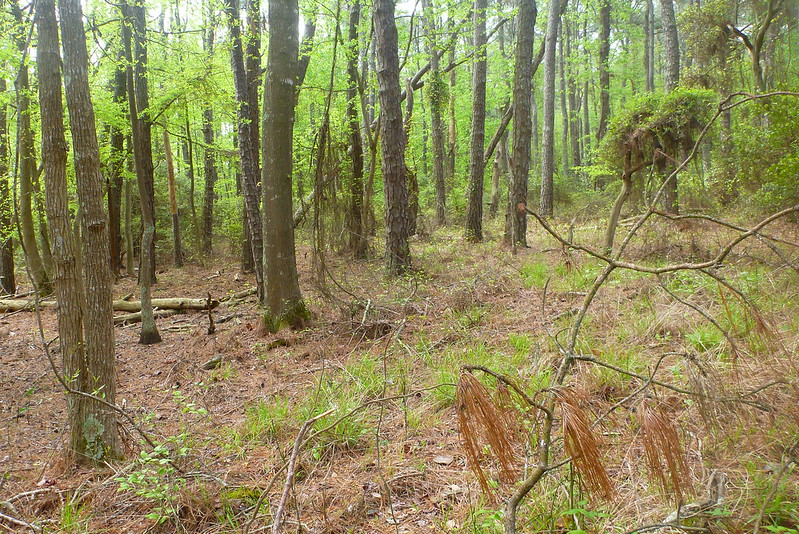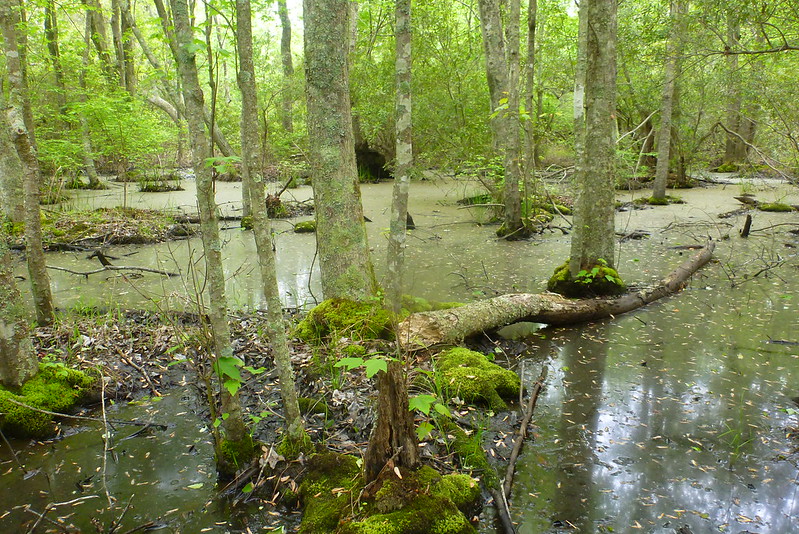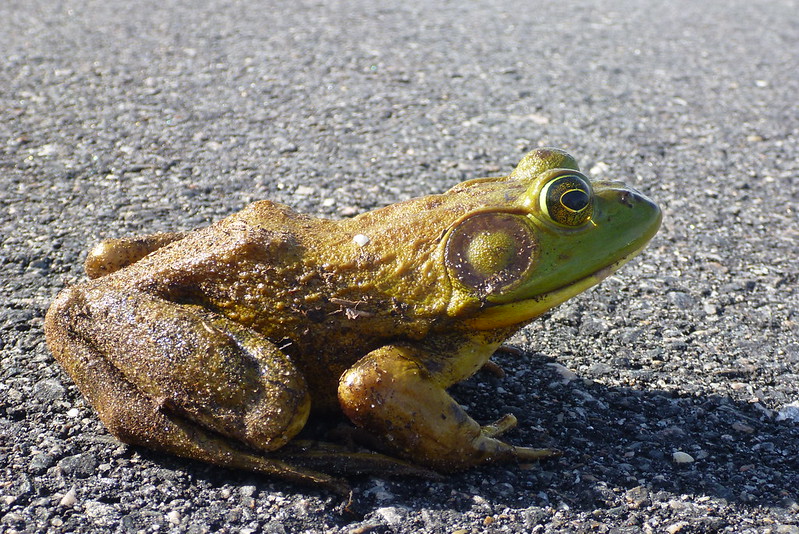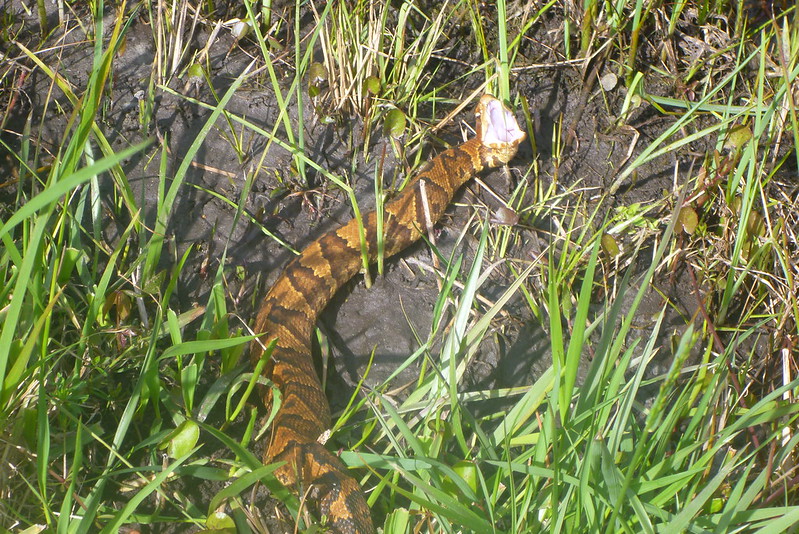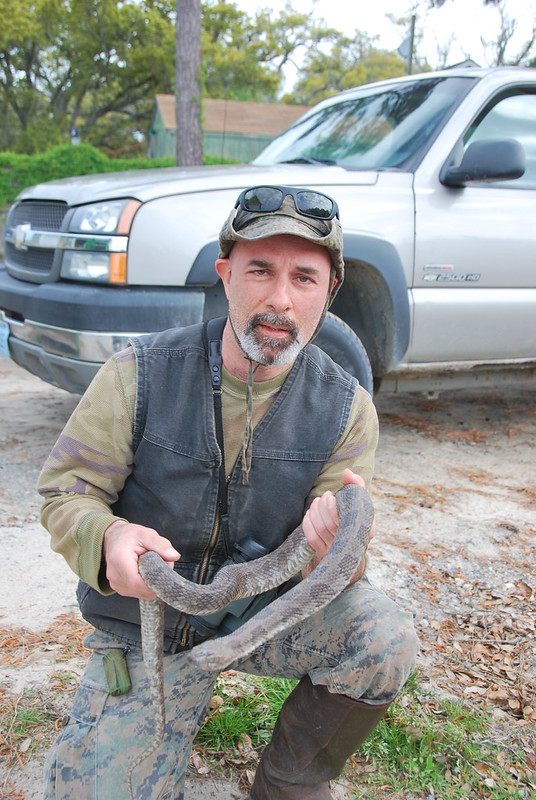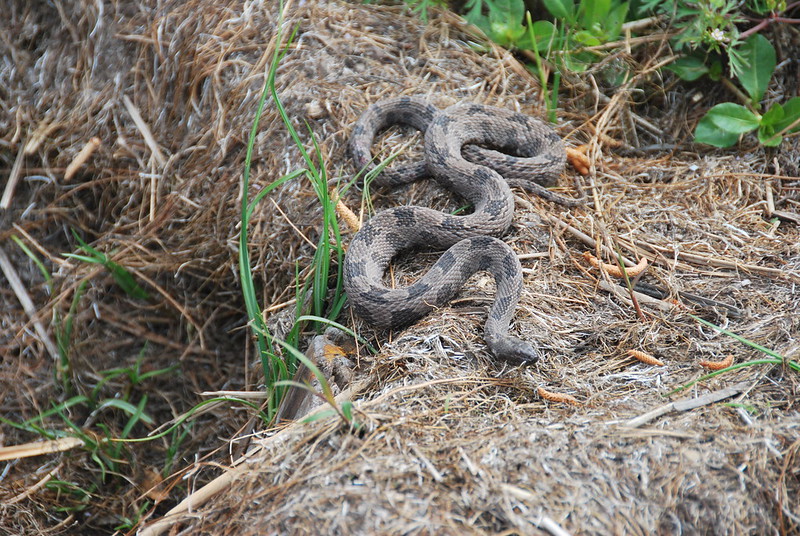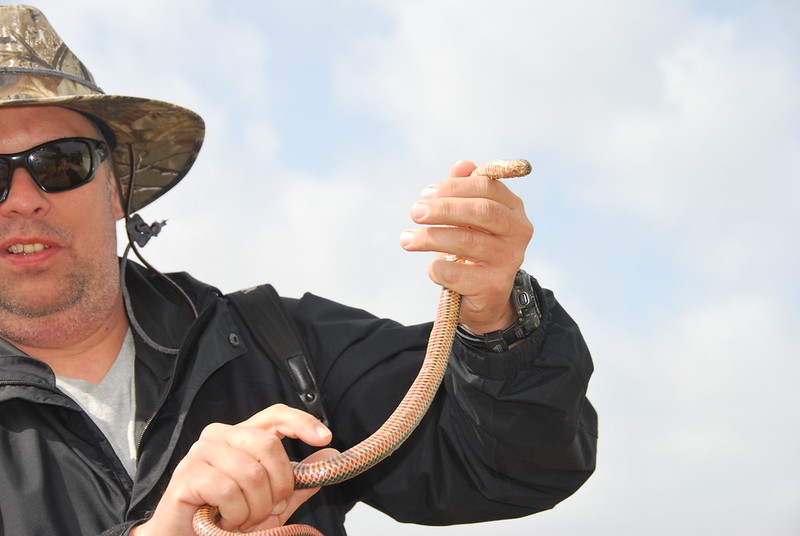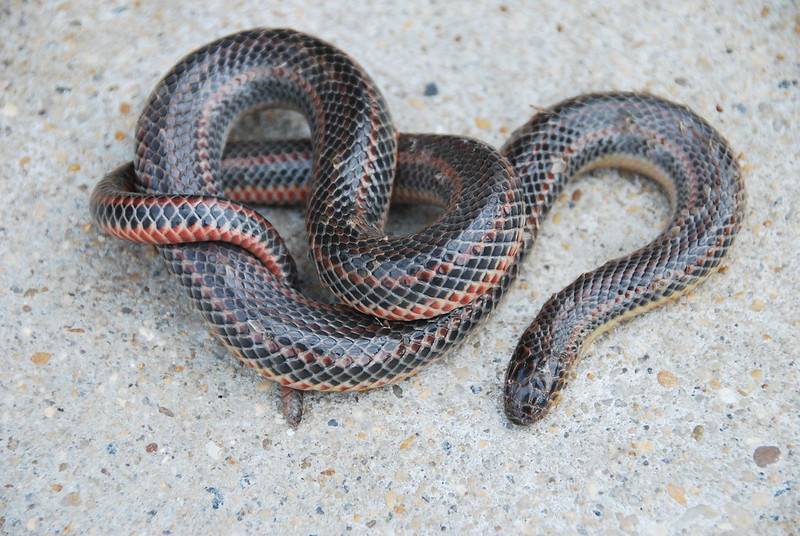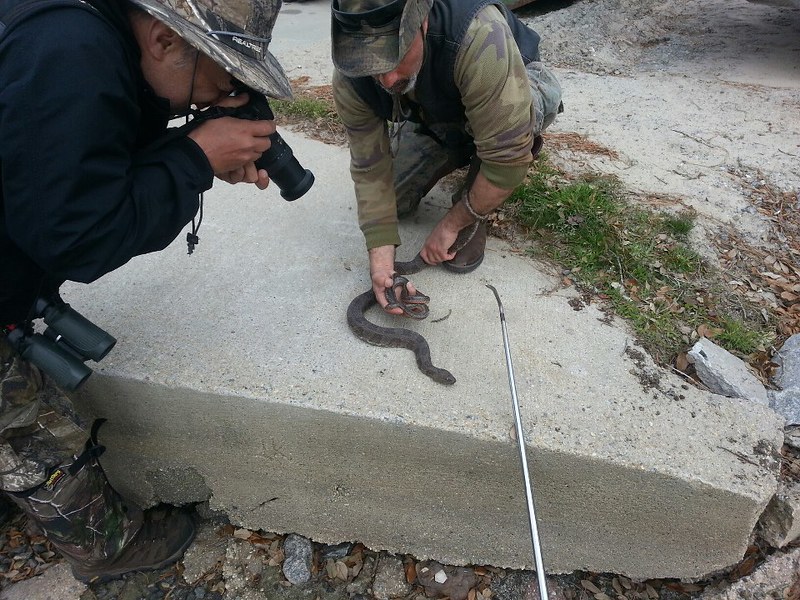An official and legal survey of The NWR and False Cape Park in conjunction with the Virginia Hematological Society took place from May 3-5 2013. There were total of 8 teams of surveyors ranging from scientist to ordinary novice herpers all volunteering their time to help the Refuge and the park service get some insight into their herp inventory. Weather conditions were not the best with temps reaching at most 60 degrees but with partly cloudy skies and a brisk onshore wind made it feel much colder. Nonetheless the show went on! Each team was assigned a zone which covered more than 6 miles in length from the Backbay NWR in Virginia Beach all the way to False Cape State Park bordering North Carolina.
Mike Gregory checking an old dumpsite near the North Carolina Border.
Even with 8 teams totaling nearly 80 participants was no enough to thoroughly cover the area. The teams were assigned group leaders and were given designated zones to survey. These zones included habtiats of open areas with pools of water known as impoundments which were further separated by dykes.
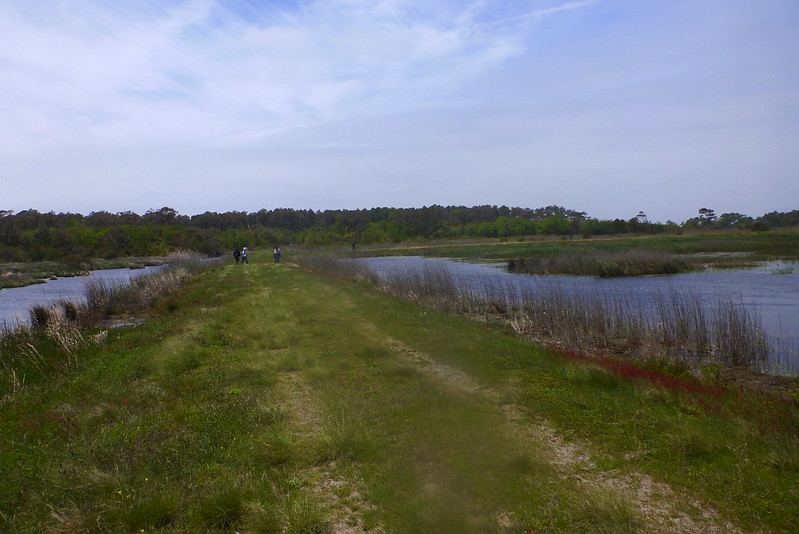
The impondments occupied the open area that separated the dune beach and ocean eastern coastline from the marsh and bay area to the west. There were also sections of maritime forest mostly dominated by live oaks and lob lolly pines.
Within forested areas were an abundance of low lying vernal pools and wet areas.
There was one team that kayaked and canoed to an island within the bay area. Species found included yellow belly sliders, painted turtles , snapping turtles, green frogs green tree frogs squirrel tree frogs,
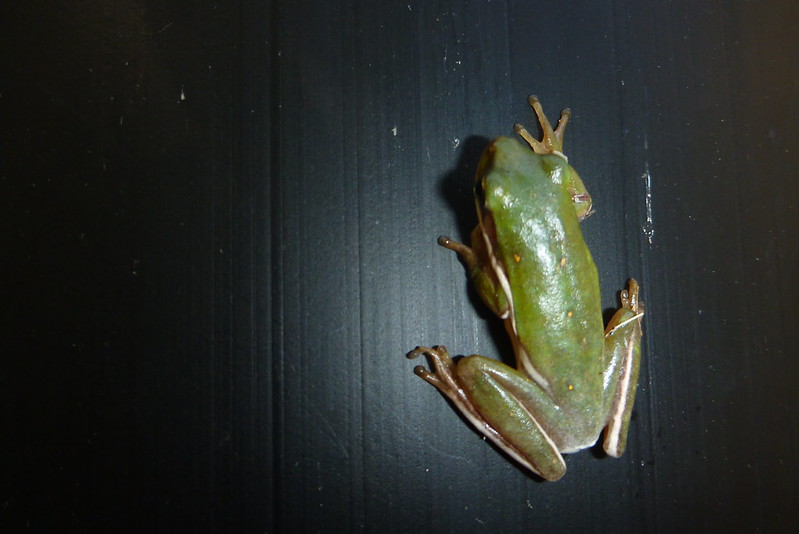 pine woods tree frogs, southern leopard frogs,
pine woods tree frogs, southern leopard frogs,
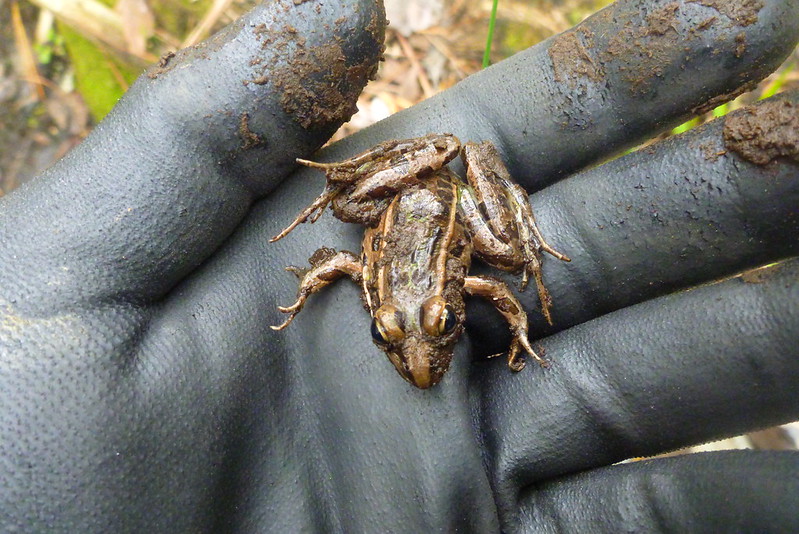
american bull frogs, narrow mouth toads,
fowlers toads and sothern toads. Snakes were high on the list among the herpers. This area is known for its high density population of eastern cottonmouth moccasins.
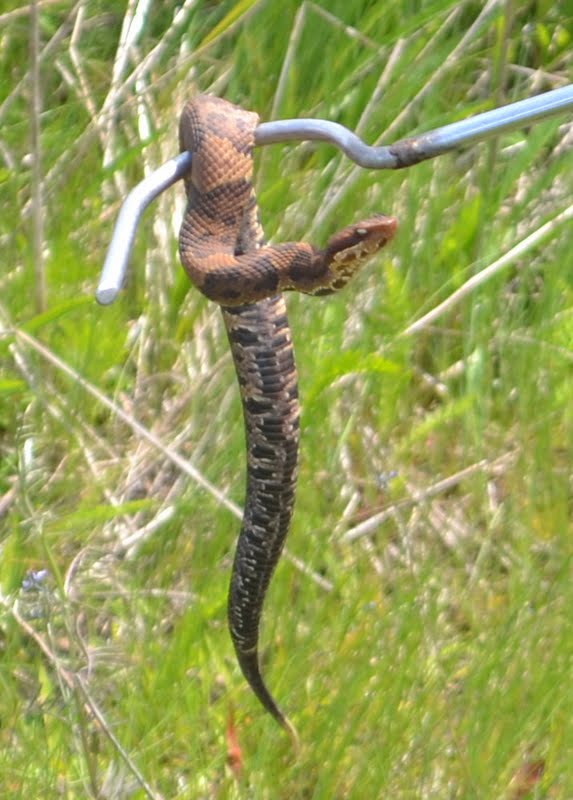 Moccasins are venomous are are cryptically camouflaged. On this trip almost every one found or caught one without incident. Other snakes found were northern black racers, brown water snakes, northern or common watersnakes, red bellied snakes, eastern rat snake and a garter snake.
Moccasins are venomous are are cryptically camouflaged. On this trip almost every one found or caught one without incident. Other snakes found were northern black racers, brown water snakes, northern or common watersnakes, red bellied snakes, eastern rat snake and a garter snake.
The one snake most highly prized was found by my group.
Common Rainbow Snake
Rainbow snakes are seldom seen due to their preference for certain types of foods and habitat requirements. We were fortunate enough to stumble upon one by accident. No salaamders were reportedly found.

